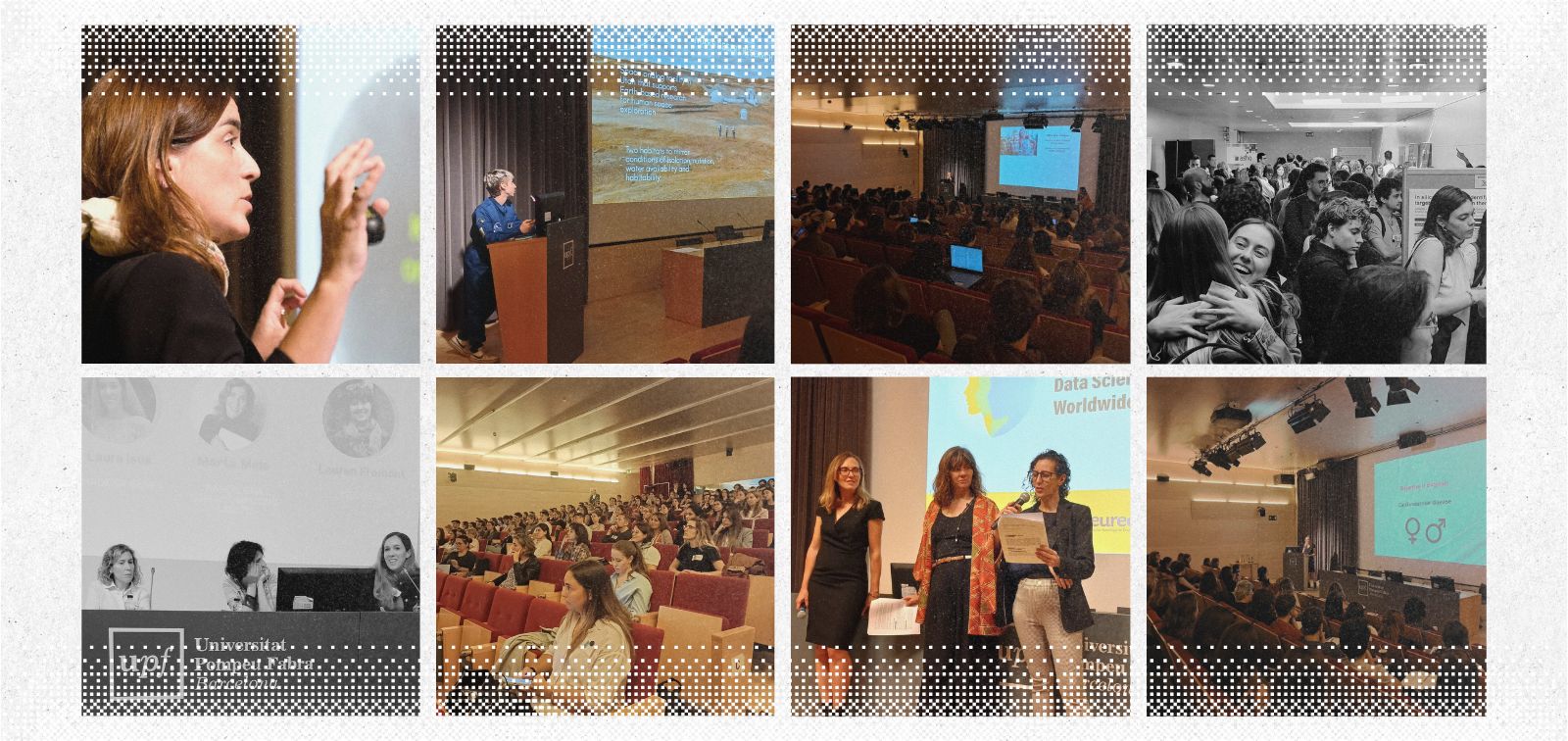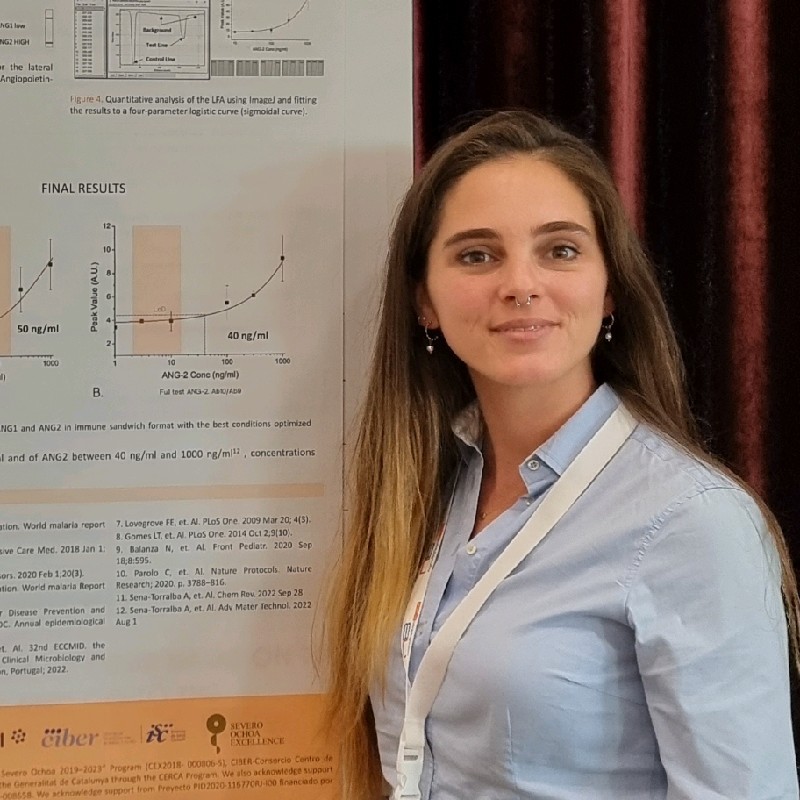Women in Data Science Barcelona Biomedicine Inspires the Next Generation of Health Data Scientists
The event consolidates its position as a benchmark for promoting of diversity and inclusion in data science
28.10.2024
The auditorium at the Poblenou campus of the Universitat Pompeu Fabra (UPF) was packed to the rafters to hear the speakers at Women in Data Science (WiDS) Barcelona Biomedicine, an event to learn about the work of women leading research in biomedicine and digital health, with a focus on increasing gender diversity in data science.
The initiative, which began at Stanford University ten years ago, is now in its third edition in Barcelona, once again with the support of Paula Petrone, Associate Research Professor at ISGlobal, and this time also Maia Nahmod, Health IT Consultant at IN2, and Lauren Fromont, Programme Officer at ISGlobal.
The three led the event in front of an audience of 250 people (plus another 350 connected online), mostly young researchers. "It's for them, to motivate the younger ones," Paula Petrone summed up with a satisfied gesture. A luxury programme designed to stimulate these scientists at the beginning of their careers, whom Denise Naniche, ISGlobal's scientific director, encouraged to become future role models and mentors. "And I mean not only to strive for technical excellence, but also for authenticity, with oneself and with others," she added.
Menopause, the menstrual cycle and the female heart
The event was opened by the Councillor for Research and Universities, Núria Montserrat, who spoke about regenerative medicine, a field in which she is internationally recognised. She also offered some advice to the students. Throughout the day, the need for science to be more diverse was stressed. "This is the biggest challenge we face," said Marta Melé, Group leader of the Transcriptomics and Functional Genomics Laboratory at the Barcelona Supercomputing Centre. "Until recently, only European men in their 50s have been studied." The researcher explained how her group aims to identify genes linked to the menopause. "We have very little data, and this needs to be corrected because it affects half of the world's population."
Similarly, Lucía Matamoros of Hypatia Mars explained how, during a Mars simulation in the Utah desert, the organisation will study the impact of menstrual cycle fluctuations on an all-female crew. Among other things, they will examine the effects of the menstrual cycle on cognitive function, physiological and psychophysiological health, and adaptability in extreme environments.
In another session, Paula Petrone presented three studies she is participating in that focus on the potential of artificial intelligence to help prevent cardiovascular disease. "These are traditionally considered male diseases, but that's because we women are underdiagnosed because our symptoms are different".
In the final block, Maia Nahmod chaired a panel on diversity in the work and professional lives of women in science, technology, engineering and mathematics. Topics discussed included job quotas, imposter syndrome and how these factors affect their careers. The challenges and barriers that many women face in their careers were also addressed. Throughout the discussion, the critical role of mentoring and the urgent need for more women to act as role models was highlighted.
The day ended with a networking session and a sense of achievement. "We hope that we have inspired a new generation of women scientists and helped to build a community," concluded Lauren Fromont.
WiDS Barcelona Biomedicine was sponsored by ISGlobal, AstraZeneca, Asho, UPF Igualtat i Diversitat and Eurecat.




